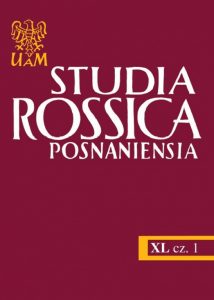Заметки о грамматике обобщений (на материале афоризмов)
On the grammar of generalizations (based on the example of aphorisms)
Author(s): Agnieszka GaszSubject(s): Theoretical Linguistics, Applied Linguistics, Philology
Published by: Uniwersytet Adama Mickiewicza
Summary/Abstract: Generalization does not only catch the interest of philosophers, logicians and psychologists but also that of linguists. This is mainly because generalization, which results from human intellectual activity, is reflected in language and therefore also in texts that are created by human beings. Aphorisms are by nature adjusted to expressing generalized information and are considered the most widespread form of expressing the so-called generic language register, as defined by G.A. Zolotova. The main criteria for assigning a given text to this register are a generalized subject and a timeless predicate. By taking into account the above criteria for assigning texts to this register, sentence analysis reveals the most essential features of aphoristic generalizations, which can be shown on the subject-predicate-object axis, including a qualitative, quantitative and space-time description. Bearing in mind the most important structural and semantic characteristics of aphorisms, one may arrive at the conclusion that they reflect features that are typical of sentences with the so-called generalized referential status.
Journal: Studia Rossica Posnaniensia
- Issue Year: 40/2015
- Issue No: 1
- Page Range: 125-135
- Page Count: 11
- Language: Russian

